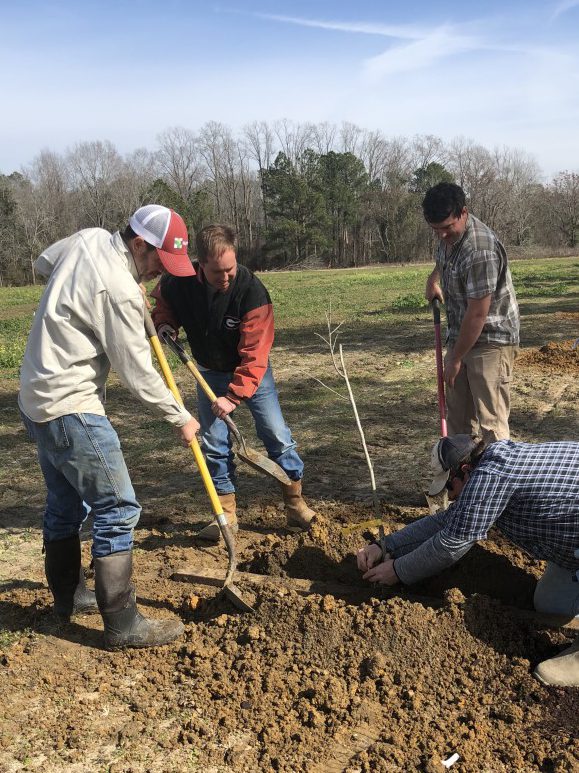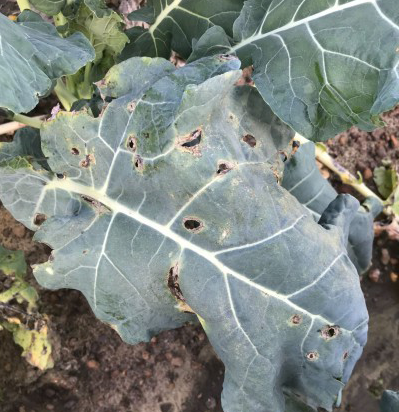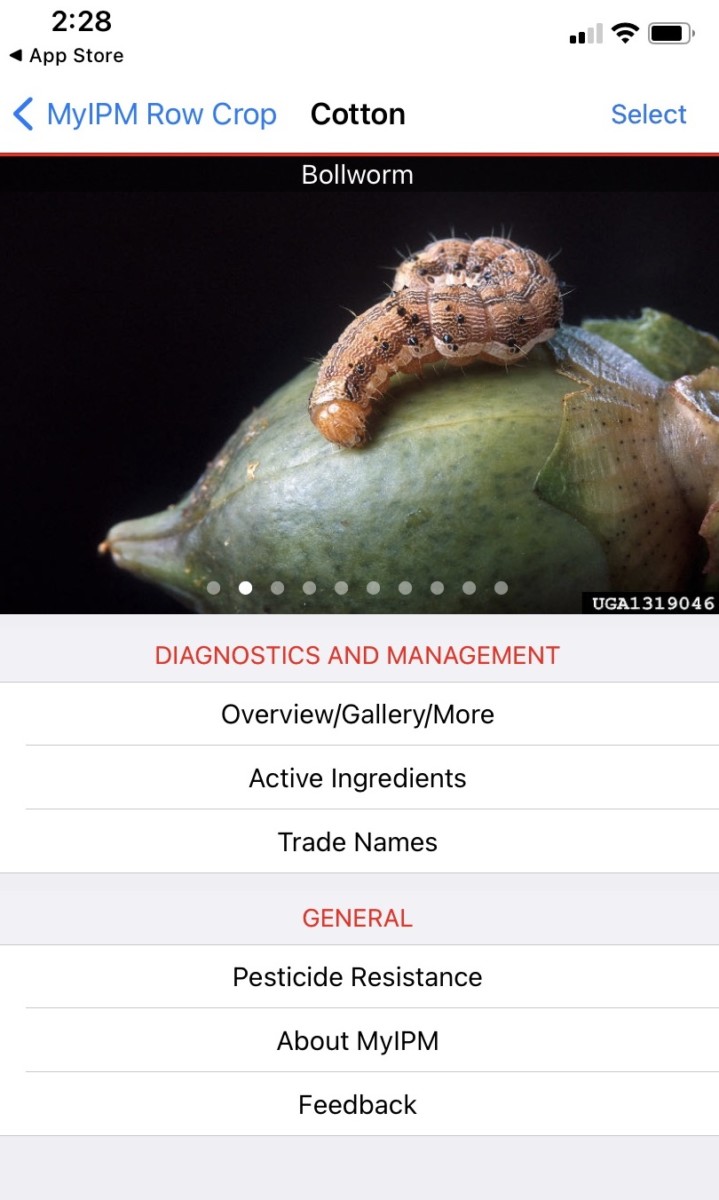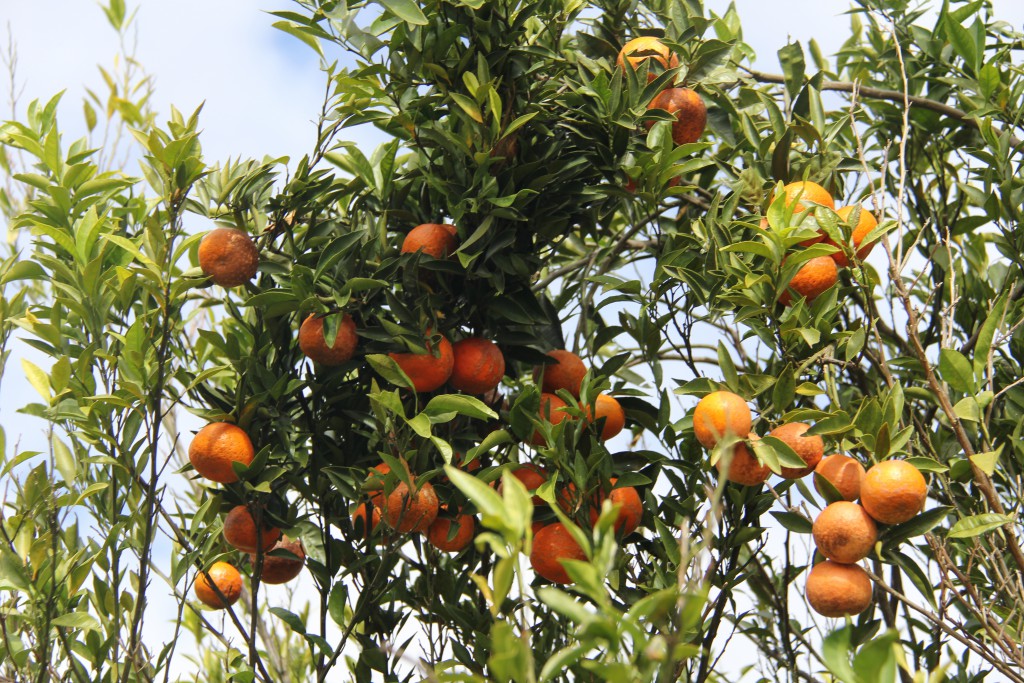disease
-

Written By: Emily Cabrera, IPM Communications CoordinatorExpert Source: Andrew Sawyer, Southeast District Area Pecan Agent After a year of thoughtful planning and collaboration, young pecan trees have finally been planted in what will serve as both long-term research plots and short-term demonstration plots at the University of Georgia Vidalia Onion and Vegetable Research Center in…
Posted in: cultural control, Demonstration, disease, disease resistant varieties, Irrigation, Pecan, Research, Variety Selection, weeds -

Anthracnose fruit rot disease, caused by fungal Colletotrichum species, is one of the most significant disease problems of commercial strawberry production in Georgia and the Southeast as a whole. Dark, sunken lesions on fruit are the main disease symptoms. Hot, humid weather and significant rainfall make Colletotrichum-induced fruit rot a widespread problem in strawberry production.…
-

By Navjot Kaur and Bhabesh Dutta Alternaria brassicicola is a part of the Alternaria complex that causes leaf blight and head rot (ABHR) in brassica crops. In our study, we observed that commercial broccoli seeds can be naturally contaminated with pathogenic and aggressive A. brassicicola. About one-third of the commercial broccoli seedlots screened from two commonly grown cultivars in…
Posted in: disease -

Written by: Emily Cabrera, UGA IPM Communications Coordinator Expert/Source: Phil Brannen, Fruit Pathologist, University of Georgia The Southern Integrated Pest Management Center (Southern IPM Center) has inducted University of Georgia Cooperative Extension fruit pathologist Phil Brannen into the Integrated Pest Management Hall of Fame for his significant contributions to commercial fruit growers throughout the Southern U.S. over the past 30 years. Each year, the…
-

Written by: Emily Cabrera, UGA IPM Communications CoordinatorExpert/Source: Dr. Brett Blaauw, Assistant Professor & Peach Specialist, University of Georgia A new insect wreaking havoc in your cotton field? Troublesome disease in your peanut stand you don’t recognize? No idea where to start? Well, there’s an app for that. This year, farmers have a new tool…
-

Written By: Emily Cabrera, IPM Communications CoordinatorExpert/Source: Bob Kemerait As weather in south Georgia turns hot and humid – with rain in the forecast – the spread of fungal diseases in corn, peanut and soybean is advancing quickly. University of Georgia Extension Plant Pathology Specialist, Bob Kemerait, is urging county Extension agents to take action…
-

A new in-service training series is set to begin this fall that will provide Extension agents in the southeast with the latest information on integrated pest management within various commodity areas. Trainings will be led by specialists from the University of Georgia with invited speakers from institutions within the Southern Region Small Fruit Consortium (SRSFC).…
-

Written by: Emran Ali, Phillip M. Brannen, and Tammy Stackhouse Fungicide resistance is a major problem for growers, as it can lead to loss of disease control, reduced yields, and unnecessary expense by applying products that no longer work. Fungal pathogens are managed with a limited number of fungicide classes. There is, therefore, a high…
-

Written By: Jonathan Oliver, Fruit Pathologist Organic food sales topped $50 billion in the United States in 2018. Statistics from the Organic Trade Association tell part of the story of this growing market: Fruits, vegetables and other specialty crops combined to make up 36.3% of total organic sales up 5.6% from the previous year. Naturally,…
-

Authors: Emran Ali, Tammy Stackhouse, Sumyya Waliullah, Jean Williams-Woodward, Johnathan Oliver Published in Plant Disease International Journal Is one of the world’s smallest pathogens harming your citrus plants? Citrus production within the state of Georgia (USA) is rapidly increasing each year. There are citrus plantings in backyards, production, and plant nurseries within at least 32…